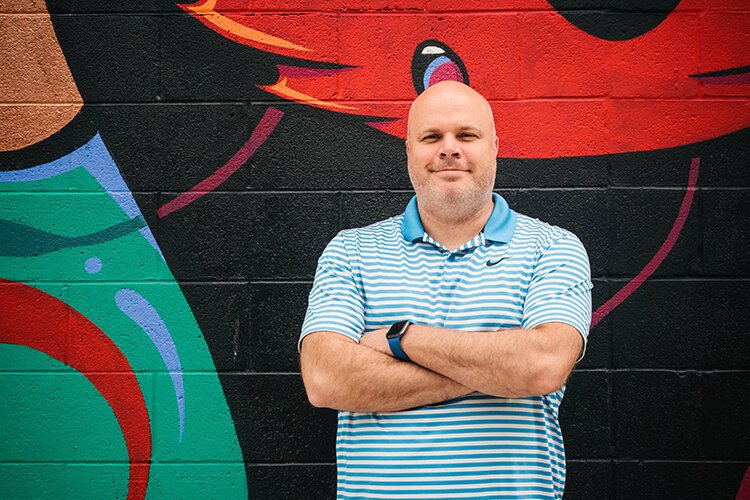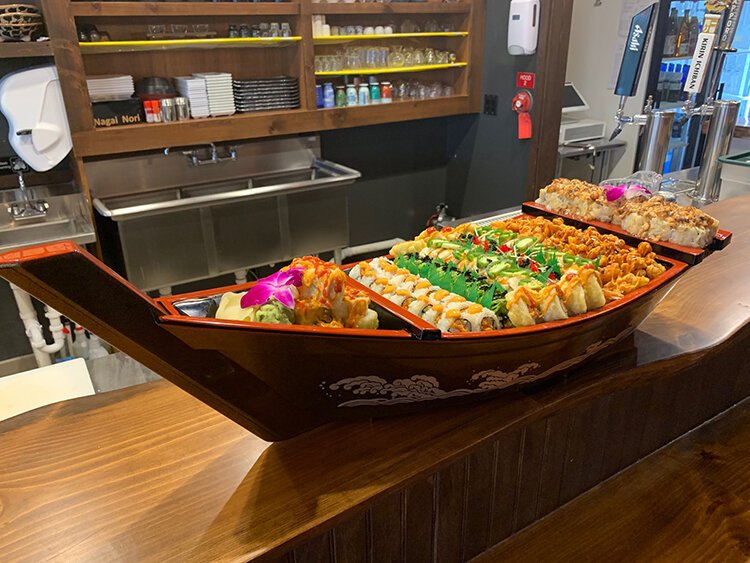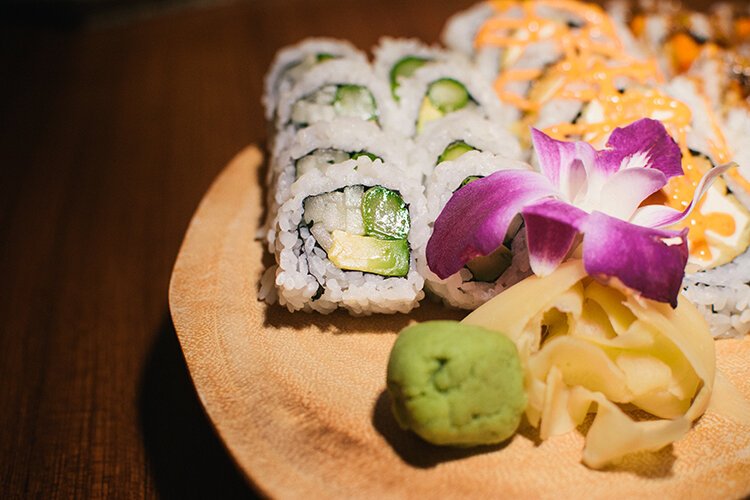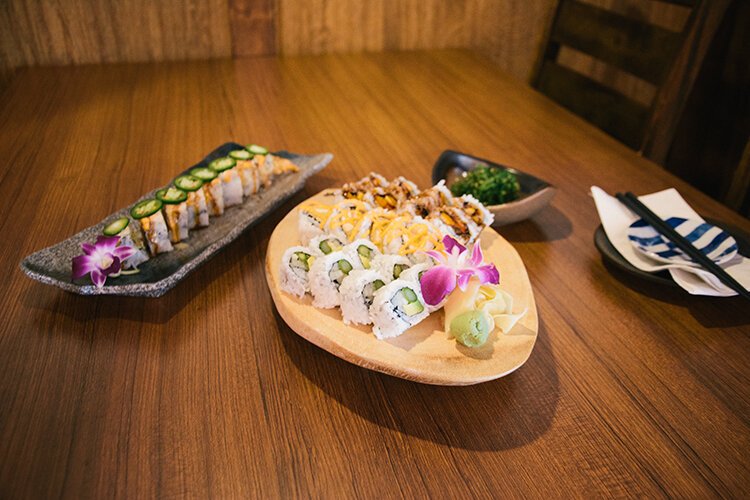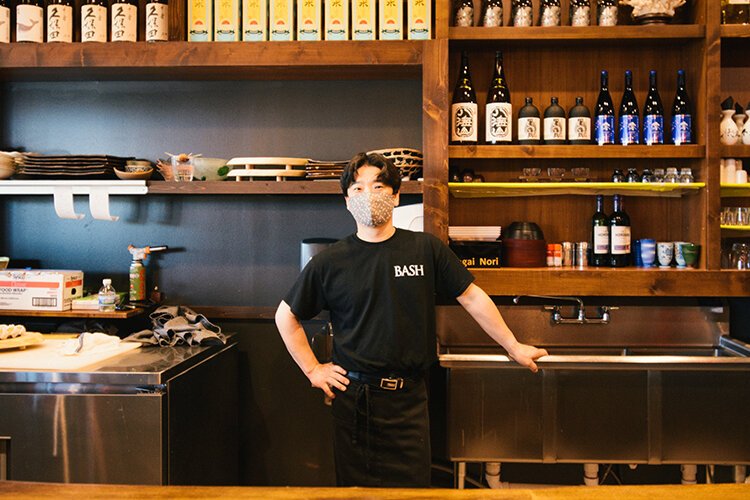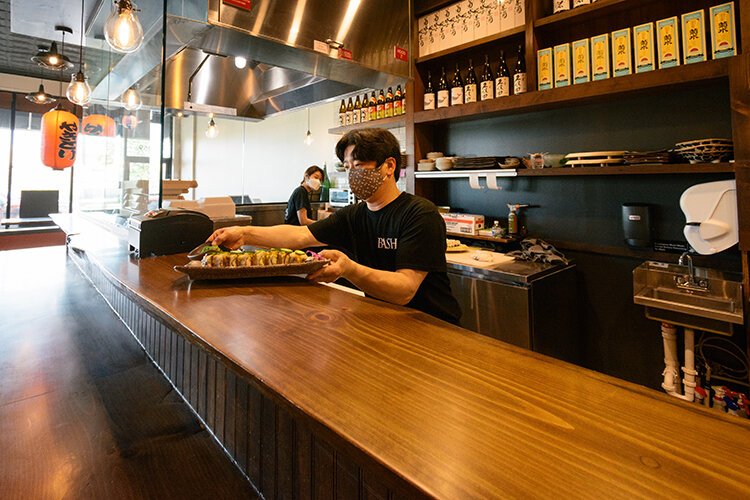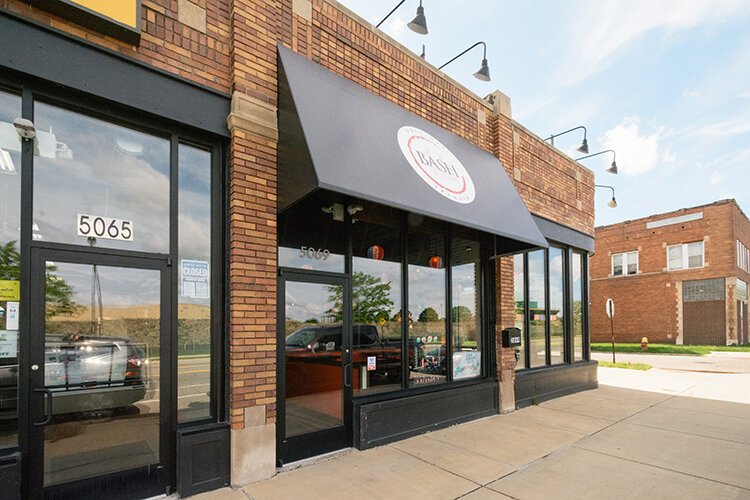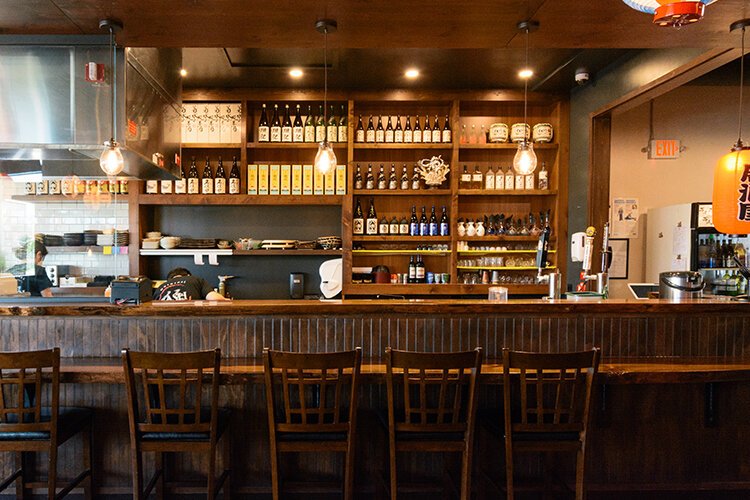BASH Original Izakaya owner learns running a new restaurant amid a pandemic is not business as usual
When restaurateur Ben Nolan opened the chic Woodbridge restaurant with his business partners in early January, they anticipated it would be busy and running smoothly by summer. But then the COVID-19 pandemic hit.
When restaurateur Ben Nolan opened BASH Original Izakaya in the former Katsu space on Trumbull in early January, he and co-owners Adrian Roman, Sebastian Fagaras, and former partner Harold Kim expected to work through the usual snags of running a new restaurant and have everything operating smoothly by summer.
By early spring, though, as the COVID-19 pandemic began to sweep across the nation and Detroit quickly became a hotspot for the virus, it became obvious that running a new restaurant during a pandemic was going to be anything but business as usual.
Originally a sit-down restaurant with a traditional izakaya menu that Nolan describes as Japanese-inspired pub food served snack-style, similar to tapas, BASH’s co-owners were forced to pivot to a takeout model in response to orders issued by Gov. Gretchen Whitmer restricting dine-in services at restaurants statewide. Nolan says the team closed the restaurant for the first month, taking time to reconfigure their business model around the demands of both the pandemic and shelter-in-place orders.
“When we started the restaurant, [we knew] it probably takes at least 12 months to even be in the black,” Nolan says. “So we understood that we were going to lose money for 12 months. We just didn’t know we were going to lose this much.”
Working quickly, the partners brought in chef James Kim and another chef to develop a new takeout menu featuring sushi while temporarily suspending their normal dine-in offerings. Developing the new menu took almost two weeks and most of the sushi they tested was given away to local hospital staff, first responders, and police. “They got to taste it and give us their recommendations,” Nolan says. “Everyone loved everything.”
During the transition, Nolan says he was forced to lay off half of his staff. “There was no way [to keep them] because we weren’t open for a month,” Nolan says. After finalizing the sushi menu and reopening for carryout only, Nolan says he was able to bring back four employees, but three servers had to remain on unemployment due to the restaurant’s dramatically reduced business.
“It’s still a struggle …” Nolan says. “We’re doing about half [the sales] we did at our peak in February before everything got ugly.”
In addition to navigating the challenges of decreased business and unusual shortages of important ingredients like lobster, Nolan says BASH also had to pivot to meet unpredictable demand. “We’ll be really busy for 3 or 4 days in a row,” Nolan says. “And then it’s just dead for a couple days, and there’s no rhyme or reason to it.” After spending a month experimenting with different hours, Nolan says the team decided there wasn’t enough business for lunch and settled on temporarily offering dinner only until business returns to a more normal volume.
To make sure food preparation and service were able to meet the highest standards of safety throughout the pandemic, Nolan says BASH also moved quickly to require specialized training for their staff. He says all employees that handle food now have to complete ServSafe training in COVID-19 food safety, in addition to regular food safety training.
Beyond the challenges of daily operations, Nolan says the cost of rent has also been a concern throughout the pandemic. “The big challenge [has been] paying rent for something that you’re barely using,” he says. To help offset that expense, BASH was able to secure a grant from the Property Owner Rental Relief Fund through Invest Detroit, which provided their landlord with one month’s rent for the space.
Responding to another order from Whitmer that permitted dine-in service to resume statewide on June 8, BASH recently reopened at half-capacity. Since reopening, Nolan was able to bring back three employees and hire three additional staff. Nolan says employees are required to have their temperature taken prior to beginning their shift, and staff continue to wear masks and gloves while working. Nolan says the restaurant accepts reservations and walk-ins for dine-in service, and is working to limit the risks of exposure to the virus by following a protocol of taking customers’ temperatures prior to seating and issuing single-use menus to all patrons.
In spite of reopening, Nolan says business remains slower than usual and is still unpredictable. Because of that, for now BASH still serves dinner only from 4-9 p.m. Tuesday through Sunday, and remains closed on Mondays.
“The hardest thing is probably the unknown,” Nolan says. “The unknown of whether or not it’s going to be worth it to stay open.” He admits he has concerns about another round of closures due to a second wave of the virus. “I don’t think the U.S. can afford it,” he says. “And I don’t think people want to go through it again.”
In spite of those concerns, Nolan remains optimistic about his chic new restaurant’s future in Woodbridge. He says after BASH opened earlier this year, the response from the neighborhood was positive. Since reopening, Nolan says old regulars have come back to dine, but he believes the closure of Wayne State University due to the pandemic has affected the restaurant’s usual capacity.
Still, Nolan says he’s glad to keep working. “We want to be open,” he says. “We want to take advantage of whatever ends up at the end of this.” Touting the restaurant’s unique dine-in menu featuring sushi (which is also still available for takeout) and izakaya offerings, sake and beer with plans to expand to a full bar in the future, a stylish dining room with tatami seating and private booths, and touchless restrooms, Nolan is confident that as things return to normal, BASH will establish itself as a neighborhood staple.
As an entrepreneur, Nolan seems unflappable. Drawing on his own past experiences working in the banking industry, he says he believes the pandemic could ultimately create opportunities for his small restaurant. “I was a business banker before this,” Nolan says. “I always told my clients the best time to really grow or expand is during bad times.”
This story is part of an ongoing series done in partnership with Woodbridge Neighborhood Development to highlight stories of resilience in the neighborhood.
